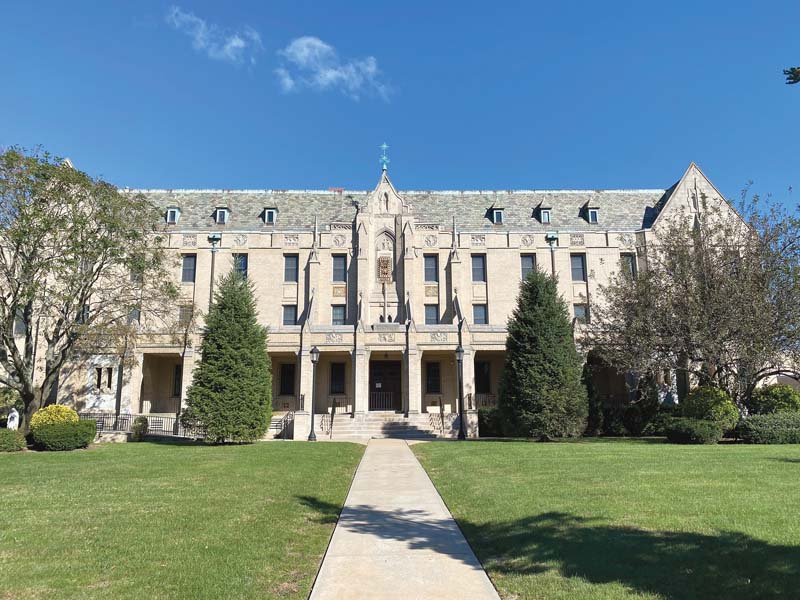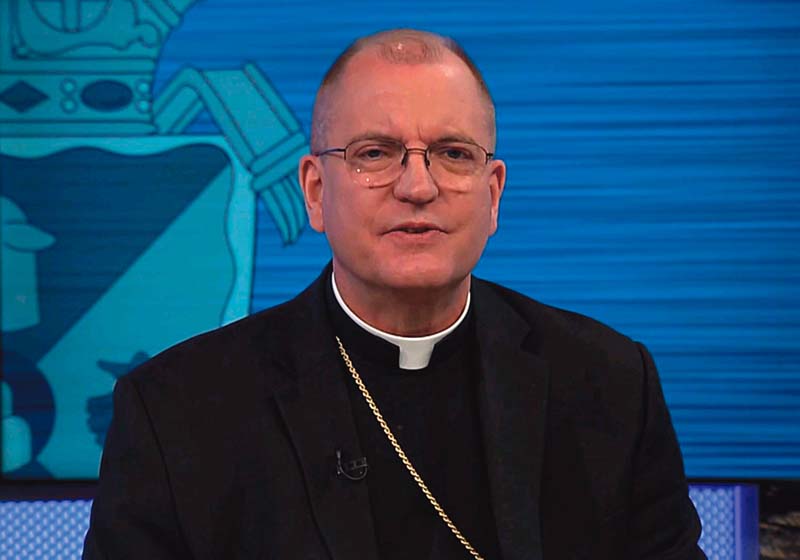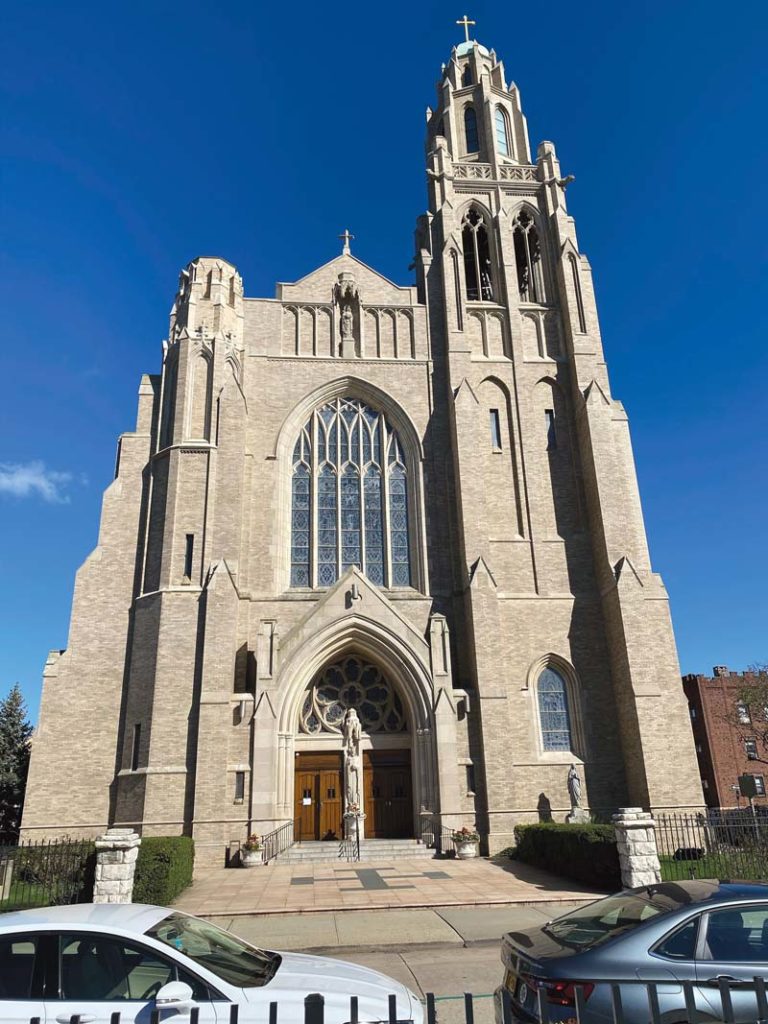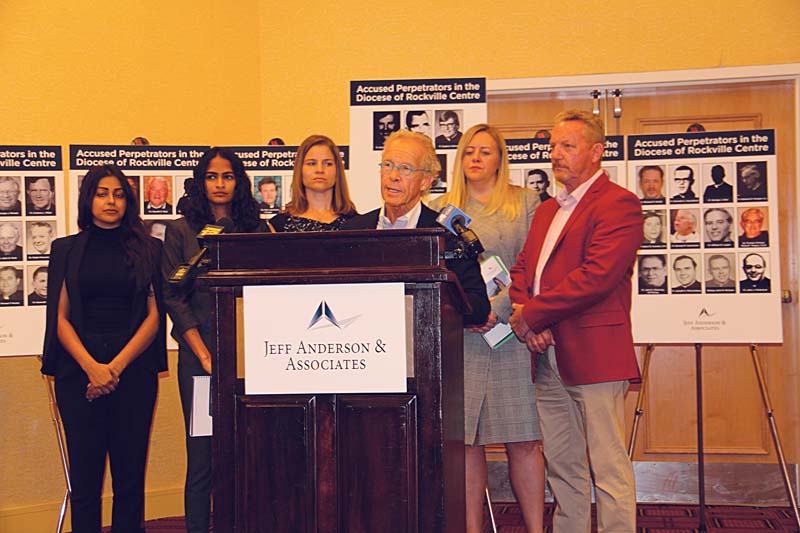
(Photo by Marco Schaden)
The Diocese of Rockille Centre declared Chapter 11 bankruptcy on Oct. 1, citing the financial burden of lawsuits brought by the Child Victim’s Act. The diocese has received more than 200 lawsuits regarding sexual abuse and more are expected to be filed after New York State extended the Child Victim’s Act for another year.

“What became clear is that the Diocese could not continue to carry out its spiritual, charitable and educational missions while also having to shoulder the increasingly heavy burden of litigation expenses associated with these cases,” Diocese of Rockville Centre Bishop John Barres said in a statement. “Filing for Chapter 11, we believe, is the only way for the Diocese to ensure a fair and equitable outcome for everyone involved. That is because the bankruptcy court will centralize all litigation and oversee a settlement that ensures that no survivor is left out or gets unfair compensation at the expense of another survivor.”

(Photo by Marco Schaden)
A bankruptcy filing was expected after the Diocese of Rockville Centre failed to halt their progress in New York State Court. The diocese called the Child Victim’s Act unconstitutional and tried to strike it down in court, they failed to do so and also lost on appeal.
The diocese then tried to get sexual abuse survivors that filed with anonymous names to use their real name. Attorneys for the survivors called this a scare tactic by the diocese in order to try and get them to drop their suits. The court would rule against the diocese on this as well.
“We feel that the Diocese of Rockville Centre from day one has been belligerent, has been unwilling to accommodate the survivors and has been combative,” Jeff Anderson, an attorney representing 73 of the sexual abuse survivors, said. “They chose the battleground to fight the constitutionality and the confidentiality. They lost those battles. It’s our belief that as long as they stand and continue to take the position they have, they will continue to lose the battles. And we will continue to fight with them until they’re ready to work with the survivors to bring resolution and transparency, because they use the reorganization to hide both the truth of their practices and their true treasury.”
The diocese previously sued their insurance companies to ensure they would pay survivors, that suit is currently pending. Filing for bankruptcy may bring the insurance companies closer to the table for negotiations with survivors and save the diocese, also dealing with the financial fallout of COVID-19, a substantial amount of money.
For survivors, the bankruptcy is not all that bad. Most, if not all, will be paid, but they will also lose their day in court to speak on traumatic events that have stuck with them for decades.
“There’s good involved in [bankruptcy],” Michael Pfau, an attorney representing about 20 sexual abuse survivors, said. “There will be a negotiated process. Everyone with a viable claim will be paid. In many cases where there are there’s ample assets and insurance, like this diocese, they will likely be compensated fairly. What they won’t have is the ability to go into a courtroom and tell their story. That they lose.”
As part of the bankruptcy filing, the diocese plans not to include their parishes and schools. However, that could mean that lawsuits against those parishes and schools could continue separately without the diocese involved.
“[It] is a significant risk for a diocese when they file for bankruptcy,” Pfau said. “They lose control over the process and they lose control over the protection of their assets.
Bankruptcies don’t always go favorably for the defendants. The parishes are separately incorporated, but the lawsuits will continue against the parishes. Oftentimes you will see in a situation like that is, when there’s a resolution of the diocese claims, there will be a resolution of the cases against the parishes. That said, a bankruptcy puts the parishes at a significant risk.”
There will be no discovery process in bankruptcy court. Survivors and attorneys have longed to see the Diocese of Rockville Centre’s secret archive records of all the priests that sexually abused children. That most likely will not be happen unless the diocese challenges the claims made by survivors in bankruptcy court, making the secret archive potentially relevant to the proceedings.

“Bankruptcy permits them to create a shield and a sword,” Anderson said. “It shields them from allowing the survivors and their advocates from being able to proceed with those claims and move forward with those claims and unearth the practices and the perils that have existed past and present. It shields them from discovery.”
The files could potentially be seen through nonmonetary conditions that are put in place as part of the bankruptcy. The Diocese of Rockville Centre is the sixth largest diocese in the country and the biggest to not reveal the abusive priest’s names in their secret archives.
“I think as an attorney and on behalf of my clients, I would like to see total transparency on the part of the diocese,” Pfau said. “I would like to see them open up their secret files to the public, and I would like to see them and provide a complete list of those priests credibly accused of child abuse.”
The diocese said it will continue operations as normal and no drastic cuts or layoffs were announced, but three of its schools shut down over the past year. However, Bishop Barres did say the diocese will have fewer financial resources to help struggling parishes and schools.
This saga is no closer to ending, bankruptcy proceedings are expected to take 18 months to two years.


































